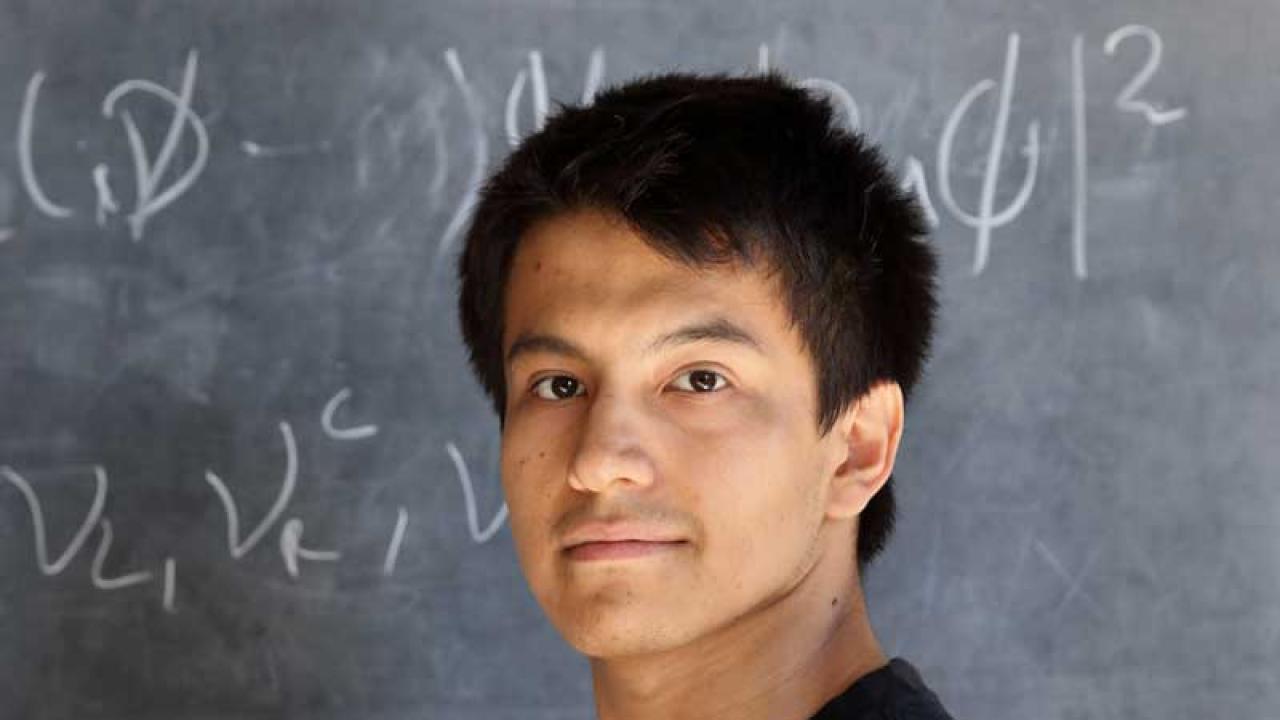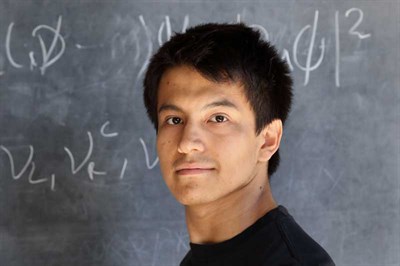
Millennia ago, thinkers who laid the ground for the field of physics were called philosophers. The fields of have diverged today, but there is still a strong link between the curiosity inspiring questions in both physics and philosophy, something that recent ICTP Postgraduate Diploma Programme graduate Jorge Martinez knows well. “When I was younger I always wanted to know what is this, why does this happen? I enjoyed learning about the answers whether they came from philosophy or science,” Martinez says.
 Growing up in Quito, Ecuador, Martinez remembers being the kind of child who asked thousands of questions, who was always reading and watching documentaries out of curiosity. “My father really encouraged me to be curious,” he says. “And then when in school I found I loved mathematics and loved philosophy, several of the good teachers I had suggested physics. Philosophy plus math, that’s physics, and they suggested I explore it further.” And that is exactly what he did, graduating from the High Energy Physics Postgraduate Diploma Programme on 24 August 2018.
Growing up in Quito, Ecuador, Martinez remembers being the kind of child who asked thousands of questions, who was always reading and watching documentaries out of curiosity. “My father really encouraged me to be curious,” he says. “And then when in school I found I loved mathematics and loved philosophy, several of the good teachers I had suggested physics. Philosophy plus math, that’s physics, and they suggested I explore it further.” And that is exactly what he did, graduating from the High Energy Physics Postgraduate Diploma Programme on 24 August 2018.
Martinez came to ICTP directly after completing his bachelors degree at the Universidad San Francisco de Quito in Ecuador, focusing in physics at the CMS experiment, one of the detectors at CERN. For him, the Diploma Programme was a roller coaster ride. “The first half of the first semester, I had seen some of those concepts before and it was kind of easy,” Martinez remembers. “But from there, it was very hard, especially the class on quantum field theory. My brain collapsed!” he laughs. “It really says something about ICTP that the level of the training is so intense. I learned here that you have to study in a group, to work together. You would be killing yourself to do it alone.” That intensity was inspiring, though: “And you learn from great scientists, like Goran [Senjanovic] and [Alexei] Smirnov [ICTP emeritus scientists] who dominate the area. That’s something I love about ICTP,” Martinez says. “It’s like getting to learn from Einstein.”
Senjanovic and Smirnov both do research in Martinez’s chosen field, the study of neutrinos. “We know that neutrinos are massive,” Martinez says. “But the very widely accepted Standard Model in particle physics predicts that neutrinos are massless. So we’re exploring the possibilities of new particles that could contribute to this mass, trying to put limits on what they could look and behave like.” Martinez worked with Smirnov on his Diploma thesis in this field, and has headed to the University of Notre Dame in the US to start his PhD work in high energy physics.
After his PhD, and maybe a postdoctoral position or two, Martinez would like to return his home country. “I would definitely like to return to Ecuador,” he says. “It’s a great challenge to build things there, there are many things to be done,” from creating systems, to companies, to departments and science communities. “You can be the first or almost the first to do a lot of things.” Martinez has already represented Ecuador at programmes at CERN and the FermiLab, a growing career that his family is very proud and supportive of. “My older sister is an engineer, but I’m the first in the family to be a scientist,” Martinez says. “I hope there will be many more.”
The country of Ecuador devotes over one percent of its GDP to higher education, a common goal for many countries, and in the last two decades has created a national scientific granting foundation. It has a comparatively large diaspora of students, among Latin American countries, who continue their education abroad, but still not many full-time researchers are part of the Ecuadorian labor force. That number and the total number of publications has been rising, however, and these papers tend to be comparatively highly cited papers. Investment in education has risen steeply in the last decade, with hopes to move Ecuador away from oil and banana revenue and towards a knowledge economy.
Wherever he builds his career, Martinez is not sure academia is where he wants to be. “I’m very interested in industry right now, the potential to work as a physicist but not in academia.” But he’s excited regardless: “In 1900, [the gentleman scientist] Lord Kelvin said that there is nothing new to be discovered in physics now. All that remains is more and more precise measurement." Martinez smiles. “I think high energy physicists are kind of feeling like that now, but just like then, it’s not true.”
“I am very grateful that ICTP chose me, from thousands of applicants, to come and learn and share classes with great young physicists,” Martinez says. “Thank you to everyone who works here, this kind of experience makes your career and is very important for our country. Abdus Salam’s ideas are still very important.”
---- Kelsey Calhoun
















